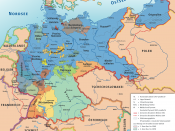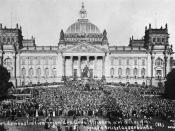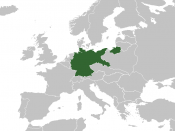In the 1928 election the Nazi's gained 810,000 votes and 12seats in the Reichstag. At the end of 1928 Hitler was still a small time politician, little known outside of Southern Germany and even there he was regarded as part of the lunatic fringe of Bavarian politics. Astonishingly in 1932 the Nazi party gained 230 seats and became the largest party in the Reichstag, however, there was still no overall majority. By promising to rip up Versailles Hitler promised a better and stronger future for the German people. Hitler also gave the German people hope of political stability as many believed the Nazi's would remove the communist threat, the economic crisis from 1929-32 allowed the Nazis to gain support as they said they had the answers to Germany's problems and promised a prosperous future. In 1932 unemployment stood at a staggering 6million, Hitler promised to solve all these problems and many more.
Furthermore, Hitler's use of propaganda gave the Germans a sense of pride and belonging gaining further support for the man himself and his Nazi party.
The weaknesses of the Weimar Republic and the rise of Hitler and the Nazis are closely linked. Many of the reasons which brought the government to failure also help to explain the success of the Nazi party. The Weimar Republic was brought in being in January 1919 following the abdication of Kaiser Wilhelm II. Fredrich Ebert, leader of the largest party, the Social Democrats, became the first President. Germany's democracy had a parliament and a democracy which on paper was regarded as the finest democracy of modern times. However, the Republic was far from popular. It was overwhelmed by economic problems from the begging and threats to its future from enemies. The Weimar government where associated with defeat from the very beginning...


